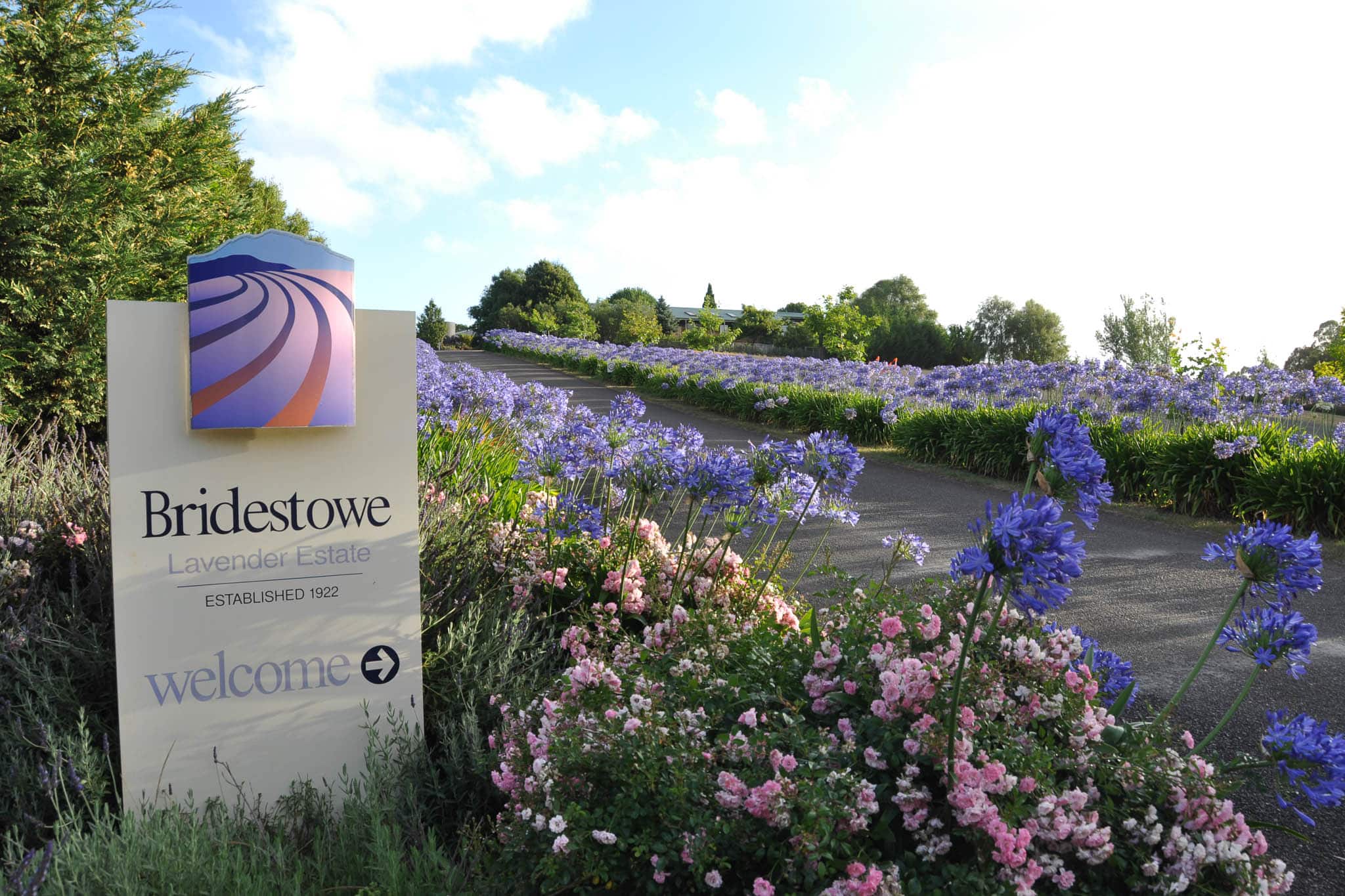Sustainability and Efficiency Initiatives
Bridestowe Lavender Estate is continually working to improve its farming practices and increase the farm’s efficiency and sustainability.
Bridestowe Estate has reduced its water use from the Little Forester River from two million litres to zero – the Estate is now completely self-sufficient. Water used in the distillation process is cooled and recycled and grey water produced on site is diverted to toilets and gardens.
Rainfall is captured from rooftops and used across the site. In 2008, a large water-capturing dam was created to support future irrigation needs during seasons with low rainfall and it serves as a home for a range of native birds, frogs and even a platypus.
All aspects of our estate are tailored towards improving sustainability:
- Native plants are grown to rehabilitate areas unsuitable for lavender, increase biodiversity and help control pests naturally.
- Weeds are removed by hand, with only a few selective herbicides are used when necessary.
- Pesticides and fungicides are not used on the farm.
- all plant prunings, used cardboard, and paper are composted and used to put nutrients back into the soil.
- At the end of their productive life, lavender production areas are rested for a season with rotational cropping to improve soil quality, prior to being replanted.
- Over 80 solar panels were installed in 2014 across the site to reduce our reliance on external power.
- Energy-efficient lighting and skylights have been installed throughout our buildings to further reduce our energy usage.
- Our onsite flower drying process uses the ancient—but highly efficient—natural rays of the sun.
